What camera should you buy?
Here are our best tips and best cameras to get under £250, £400, £600 and £850
We have researched and tested and thought about some key considerations when choosing a camera - especially your first camera!
Please note that wherever we provide price information - it tends to be averaged based on prices available through the major camera retailers - new and used - though where we spotted an especially good deal, we linked to that!
With used equipment especially, although we provide links to our best used equipment buys, since there may often be just one of a particular model available at that particular seller, they may no longer be available by the time you click on them. That's just the nature of these things. But if you have your heart set on it, worth having a search on other sites to see if another - maybe only a few more pounds more expensive may be available. Our favourite second hand sellers are mpb.com, wexphotovideo.com and parkcameras.com
JUMP STRAIGHT TO OUR CAMERA RECOMMENDATIONS
So what's the best camera for a parent photographer?
If we had a penny for each time we get asked: “What’s the best camera to buy?” And I really wish I could just say – THAT one. But I can’t. Even if we take the cost out of the equation, there are still a lot of reasons that make one camera the right fit for someone and a terrible for another.
So how do you know? Here are a few questions that may be of help.
If you’re just starting up, you certainly don’t need the £3,000 piece of gear. Instead, go for a camera that will not be too complicated to handle when you don’t know much, but at the same time, one that you won’t want to replace as soon as you’ve learned a little.
That’s why we tend to recommend cameras that are one shelf above the absolute starter camera – if possible. The production cycle of cameras these days is approx 12-18 months nowadays and sometimes the technical differences between the newest model and its predecessor are really insignificant (like for example having or not having built-in wifi) so in some cases it’s better to choose a slightly older model from a shelf up ( which had gone down in price since the newest version came out) than the brand new shiny model from the bottom shelf.
If you're upgrading your camera, you already know a bit about what's important to you and you know the degree to which you tend to use it. If you find it lacking - I'd recommend going for a model that's 1-2 levels above what you currently have, so you can get some longevity out of it.
Does the size and weight of your camera matter to you? If you have a few small people swarming around you, perhaps carting a larger piece of equipment is not really for you. Getting a heavy camera, however great it might be, won’t be of any use to you if its weight and bulk will make you reluctant to bring it with you frequently. The saying goes – the best camera is the one you have on you – and we certainly subscribe to this view. If you don’t use it, what’s the point of spending lots of money on it?
So if weight and size is a key consideration, you want something small and light ( that includes smaller lenses) which means you’re looking either at the smaller end of DSLRs or going mirrorless.
Do you plan to use it as your family camera or perhaps thinking of working towards becoming a pro? If you have such ambitions, you will need a camera that’s reliable and precise above all. Those – and lenses that come with them – tend to be a lot heavier and bulkier so worth considering whether it’s a now or future purchase.
If you’re planning for it to remain a family-focused hobby ( for now at least) don’t worry about going full-frame and go instead for a good, small and compact camera that will be easy to take with you everywhere. It doesn’t need to be a mirrorless, there are some lovely small DSLRs out there that aren’t that much bigger.
Don’t forget that when you buy a camera, you are also buying into the lens and accessories ecosystem linked to that particular brand. So your Nikon camera will only work with Nikon lenses ( or made-for-nikon third party lenses – like Sigma or Tamron), and also that you will need different lenses for your starter DSLR, full-frame DSLR, and a mirrorless – even if it’s the same brand. More on the lenses HERE
Let’s not beat about the bush. Photography is not a cheap hobby. The gear can be very expensive, but you don’t always need all that. We don’t all need to drive a Tesla if all we do is pop down the shops from time to time. All the more reason to shop with care and buy the kind of camera that’s actually well suited to what you need. It might also mean buying a camera body and lens separately to maximize your money.
Used is not a dirty word
There is a thriving second-hand market for photography gear. Specialized sellers like mpb.com and wexphotovideo.com or camerajungle.co.uk will service all their second-hand gear before selling it on and then offer between 6 months to a 1-year warranty on it (depending on the seller). This means you’re getting quality gear which you can rely on for a lot less than buying it new.
Sometimes the differences between the older models and their new version can be almost purely cosmetic - in recent years there were a few cases where literally the only things that change from an older to the newer model were the addition of wifi and touch screen - and all the actual photo taking bits remained exactly the same.
If money is a serious concern but you want to get more than just the entry-level gear, I would recommend considering second hand.
Grey imports
If you have your heart set on a specific camera and type it into google, you may find that apart from the mainstream sellers where the cameras will be roughly the same price, there will be a few online shops offering the same product for a significantly lower price. Does that mean the products they are selling are not genuine? Not necessarily - they could be what we call 'grey imports'. They are legitimate brand cameras but developed for a different geographical market where the cost of living etc sets their price point at a different level. There may be other factors such as the region specific safety regulations or power input for chargers etc. For those reasons, camera manufacturers do not allow authorised sellers to sell these camera cross regions, even if it means savings for the end user. To enforce that, they void official warranty on camera sold outside of their intended markets - something that camera users often only realise when they bring their camera to an authorised service and the camera's unique ID number betrays that connection. Some of the grey import sellers go around that constraints by offering their own warranty on these cameras, but it's worth checking the fine print. There have also been documented cases of alleged grey imports being complete dupes manufactured by non-brand affiliated factories. This is why I'm not promoting buying grey imports but want to educate you on what that means and the potential benefits and risks you take when buying them.
What's a Mirrorless camera?
Do not confuse mirrorless cameras with ‘bridge cameras’. Bridge cameras are essentially upgrades to point-and-shoot cameras which include the capability to shoot in manual modes and to manipulate a few other settings. More often than not, bridge cameras have one fixed lens which is not interchangeable with any others. We don’t tend to recommend these for one reason – even if they boast most of the features of an entry-level DSLR, they are usually designed with an Auto user in mind – not someone planning on using them in semi-manual and manual modes. The key settings tend to be hidden deep in the menus and not easily or ergonomically accessible.
But mirrorless cameras – that’s a whole different story. They are essentially designed to be the new DSLRs. They make away with some of the mechanical elements from the DSLR design ( the mirror which sends the image from the lens to the viewfinder – which does not actually take part in the photo creation, just pre-viewing the image) ) and can pack great features and advanced settings. The quality they give you is as good or better than DSLRs. They are available at every level - from beginner, entry level cameras to fully blown professional gear with all the bells and whistles a pro might desire.

The future is Mirrorless
More importantly, camera manufacturers are definitely putting their money that way - Nikon for instance announced a few years ago that they they will not be further developing and updating their entry level DSLR ranges, and instead offering entry level Mirrorless in the coming years. So if you're thinking long term, mirrorless maybe the way to go. Most recently, Canon followed with a similar announcement - this time saying they are no longer planning on updating new DSLR lines of their flagship top end models. All of the research and development across the industry is going to mirrorless.
We have more resources on cameras - our very own guide to cameras and to lenses
If the terminology on the camera gear you see sounds like black magic, and you;re not sure what's the difference between a £100 lens and a £1000 lens, you're going to want to read it! Inside you'll find everything that you didnt even know you wanted to ask about!
IMPORTANT: by downloading the guides, you give us consent to allow us to occasionally get in touch with you via email with Photography for Parents related emails, freebies and offers. Of course you can unsubscribe at any time - we always aim to provide value and help your photography grow
So with all that being said, what do we actually recommend?
Below you will find a roundup of cameras we recommend up to about £850. We're focusing on entry level and enthusiast cameras rather than advanced and pro end of the spectrum because typically if you are shopping for that advanced upgrade, you already have a strong idea of what you like and need. So these are the cameras we'd recommend for beginner through to intermediate photographer.
Are the cameras featured the only choices worth considering?
When making my selection below, I had in mind a parent photographer with the specific needs and constraints we tend to have - the cameras shouldn't be too big so we don't accidentally give our kids a concussion, or so heavy so they don't get taken with you on days out because you're not a camel, or so expensive that you'd have reservations taking it to your local playground with you. They should handle indoor light well - because let's face it, that's where a lot of the life we want to capture happens, and finally the focus should be worthy of a speedy toddler.
In going over the list of available cameras I had these features, as well as budget front of mind and I feel that my selection does them justice. What I tried to weed out in this comparison were cameras that were minor upgrades and not worthy the extra pennies for little more functionality. I pitted cameras in the same class against one another and featured the ones that on balance fared better in their class - this doesn't mean that the ones I hadn't listed are unworthy, just that in my subjective opinion they fell below the top 3 in each class. Given the general level of cameras these days, the cameras that missed out on being featured would most likely serve you well too because - and I cannot say this enough - it's your skill and eye that matters most. It is never the camera that makes a difference, but ALWAYS the photographer.
I guess what I'm trying to say is - I did my best with as much due diligence as I could, but don't treat my word as gospel.
Recommended cameras under £250
This is a tight budget to get a camera but not impossible as long as you don't mind starting with something a little older and definitely second hand. Not all older cameras aged gracefully, but there have been a few models that are very budget friendly and while missing some of the more modern features, can still give you lots of great photos as your first proper camera.
DSLRs vs Mirrorless
In this budget, you will get more choice in the older DSLR ranges as the industry slowly shofts towards mirrorless. Yes, they will be a bit bigger but you'll also have more of a selection with budget friendly second hand lenses. But I do also have one great mirrorless recommendation in this budget which happens to be my fave budget camera to recommend on a tight budget so keep reading!
I'm not providing specific model links as with the second hand market you have unique models that can go quickly so I would recommend entering your preffered model into https://www.mpb.com/en-uk, https://www.wexphotovideo.com/used/ or https://www.parkcameras.com/used. These three companies are my go to's for second hand equipment that arrives fully serviced and with a warranty.
DSLR
Nikon D5300 or D5200 - between £150 - £190 second hand which leaves you with some change for a kit lens ( typically under £50 for Nikkor 18-50mm zoom). The 5000 range second hand is priced similarily to the lower entry level 3000 range but it has a better range of settings and controls so if going in this budget, I'd opt for higher spec especially as they often have the same sensor and processing chip.

Canon - EOS 700D - EOS 100D - you can pick these up for between £150 - £200 used and again have some money left for the lens. They are both reasonably small and not very heavy cameras, bith with touch screens. The 700d also has the benefit of a flip out screen which is not available on the 100d. I'd pair it either with a standard Canon kit lens ( Canon EF-S 18-55mm f/3.5-5.6 II) which you can pick up for under £40.
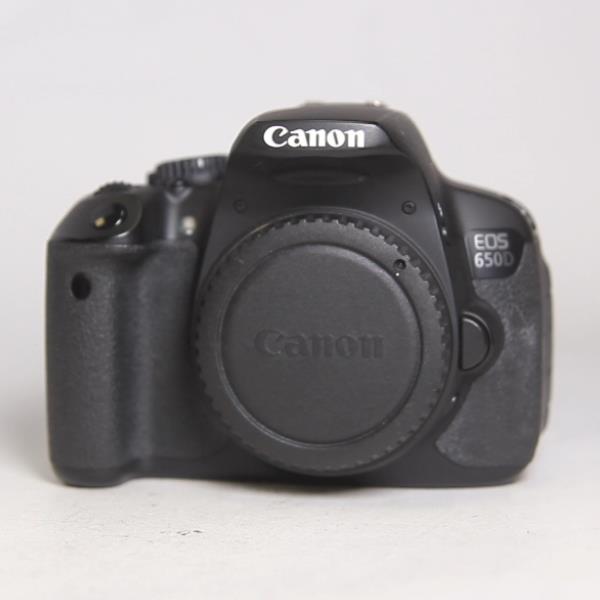
Mirrorless
My absolutely favourite low budget camera recommendation is either Olympus OM-D EM-5 or Olympus OM-d EM-10 - both avilable second hand from around £200 - £250. Olympus was one of the very first manufacturers producing mirrorless for the general market - way before Nikons and the like. As a result, these cameras are really well specced out, with features that easily rival the dslrs of similar price and age. Plus they are TINY. Slip it in a pocket tiny ( see pick with my large iphone for comparison) . My only suggestion will be to buy replacement batteries as the old ones that comes with these cameras don't live very long. A standard zoom lens for either of these will set you back from around £80 - £100

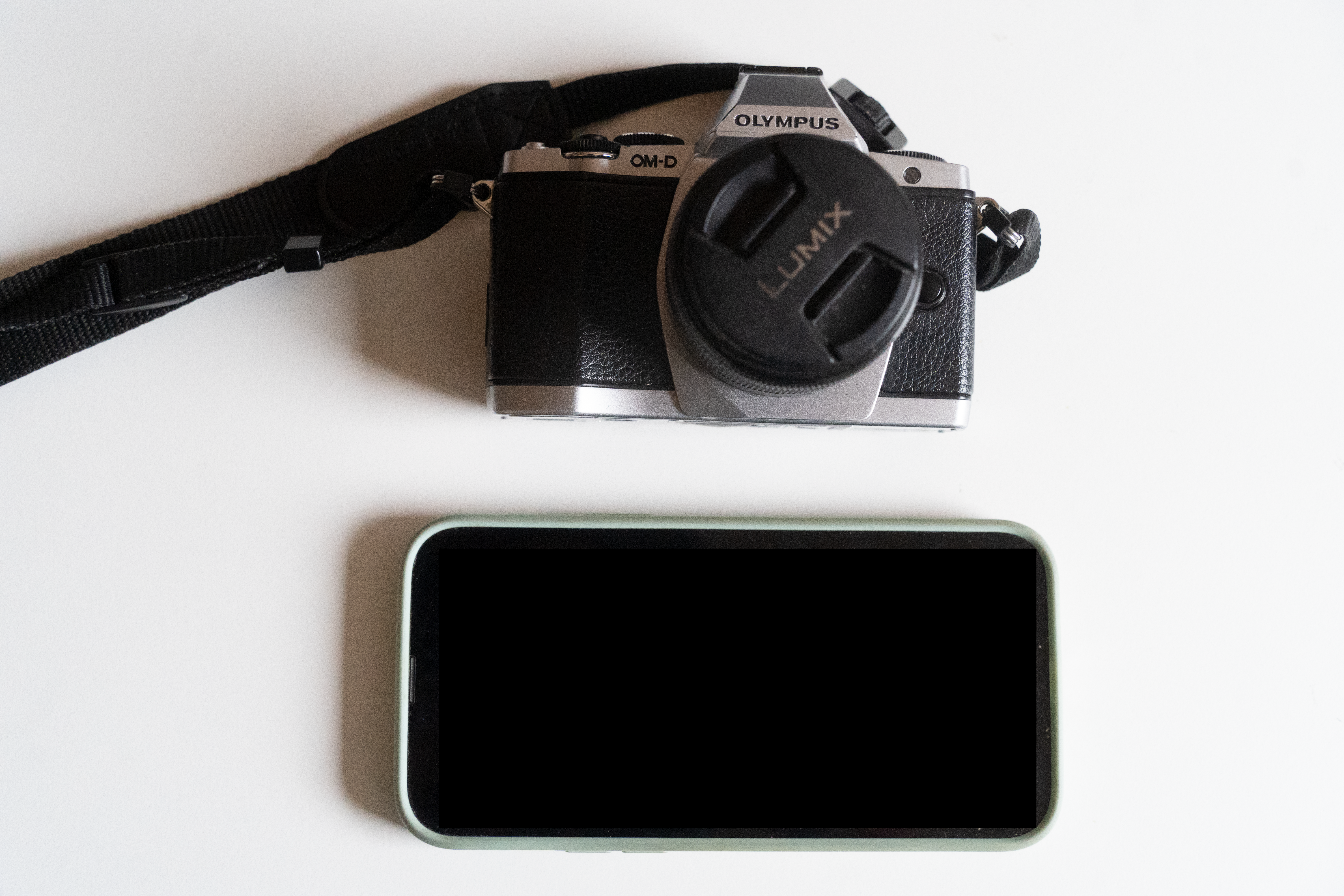
Recommended cameras between £300 - £400
Bad news if you were hoping to get a brand new camera in that budget - there is literally nothing worth looking at in either DSLR or Mirrorless ranges.
BUT, if you're not above picking up some used gear ( always buy from a reputable professional seller which will offer warranties on their used gear and accept returns) , there are some great options out there:
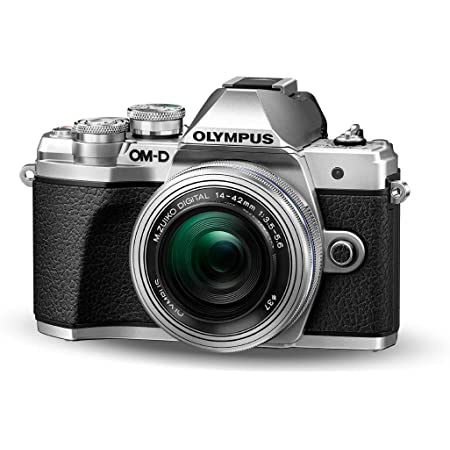
Our pick for under £400: Olympus OM-D E-M10 Mark III or IV (second hand)
Olympus OM-D E-M10 Mark III - from £299 at mpb.com
Great looking, very capable and TINY! camera with a lot going for it. With very good performance on the move and a great focus mechanism, it definitely packs a lot of features in. Bonus – it uses a micro 4/3 lenses which means the pool of lenses available for this camera is wider than some of its competitors as you can use both Olympus, Panasonic, and a few other third party lenses. The slight downside is that the smaller sensor which results in a smaller resolution - of 16MP. However that really only matters if you plan on printing your images in large format, which most people don't tend to do often. A big bonus is 5 axis image stabilization which makes shooting sharp images in low light MUCH easier. Best if you can stretch the finances to get the mark IV version, but even if not, Mark III will still serve you well.
Other worthy options:
From the mirrorless range: Fujifilm X-T20
Fujifilm cameras are beloved by photographers for their beautiful and film-like colour rendition - this one is no exception. The X-T20 is also compact and lightweight, making it highly portable, ideal for travel and everyday photography. It features a user-friendly interface with intuitive controls and dials, allowing for quick and easy adjustments to settings. The camera's advanced autofocus system is fast and accurate, ensuring sharp images even in fast-paced situations.
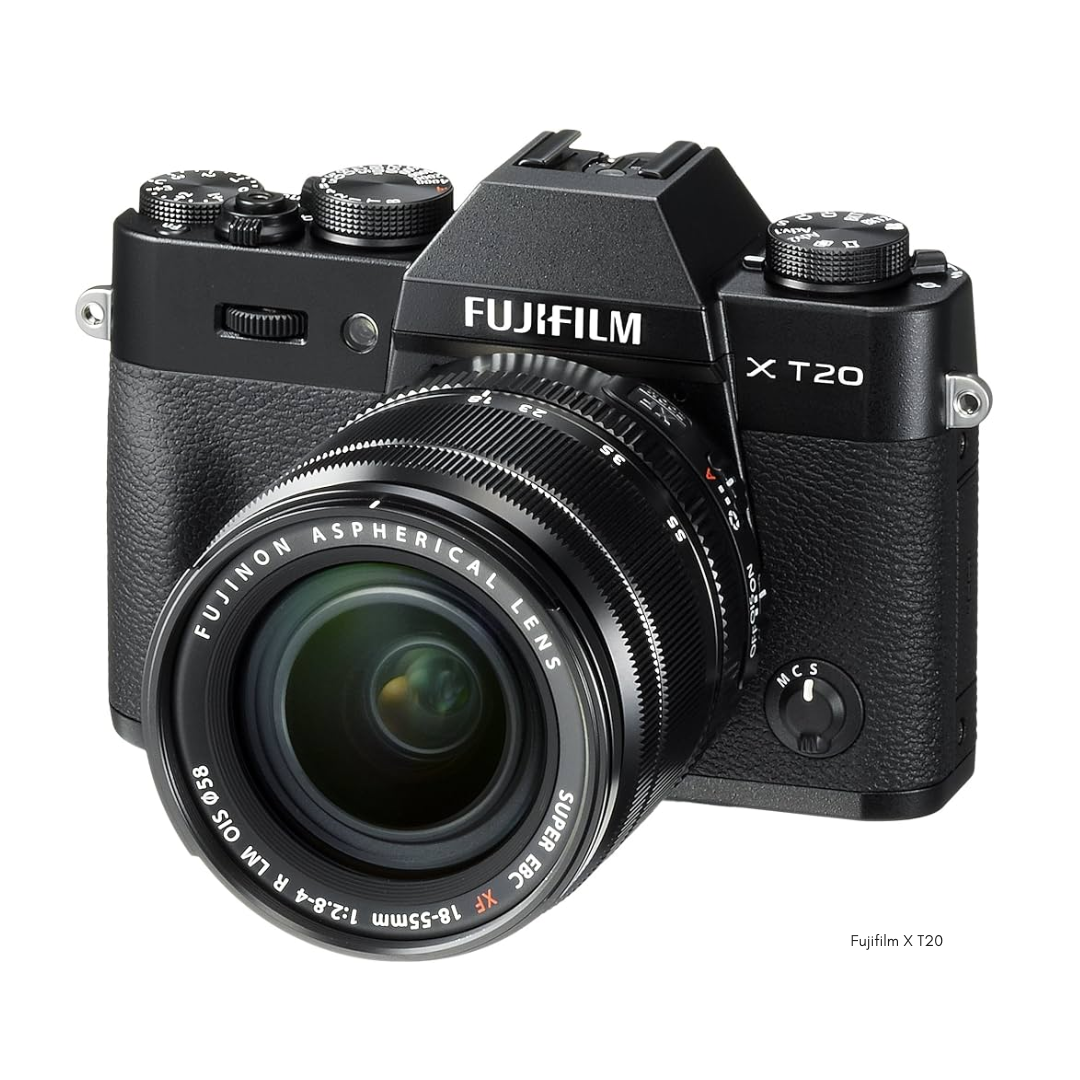
If you want to go down the DSLR route, here are the two options we'd possibly consider. I will say though, that the mirrorless options we listed above are actually more advanced and capable, and for that alone, I'd opt for one of them before these entry level DSLRs
Nikon D5500 or d5600
The most recent Nikon DSLR from this line is D5600 ( from £340 - used at Park Cameras) , however, the only thing separating d5500 and d5600 is a few added frills in the newer camera - such as wifi connectivity rather than anything that impacts the actual photo taking. So if money is tight, I'd opt for d5500 which you can get from £214 at mpb
Canon EOS 2000D:
£218 at Wex- a basic, no-frills, entry-level DSLR camera in a small and light package from Canon.
Recommended cameras from £400 - £600
Much more choice here, although the brand new camera ranges are still limited:
If you wanted to get something new in the £400 - £600 bracket, your DSLR range is pretty much reduced just to the Canon 2000d which I mentioned as a second hand possibility in the Under £400 range. It is a pretty basic DSLR and if I'm honest, you can do better in the mirrorless range for the same amount of money.
New cameras between £400-£600
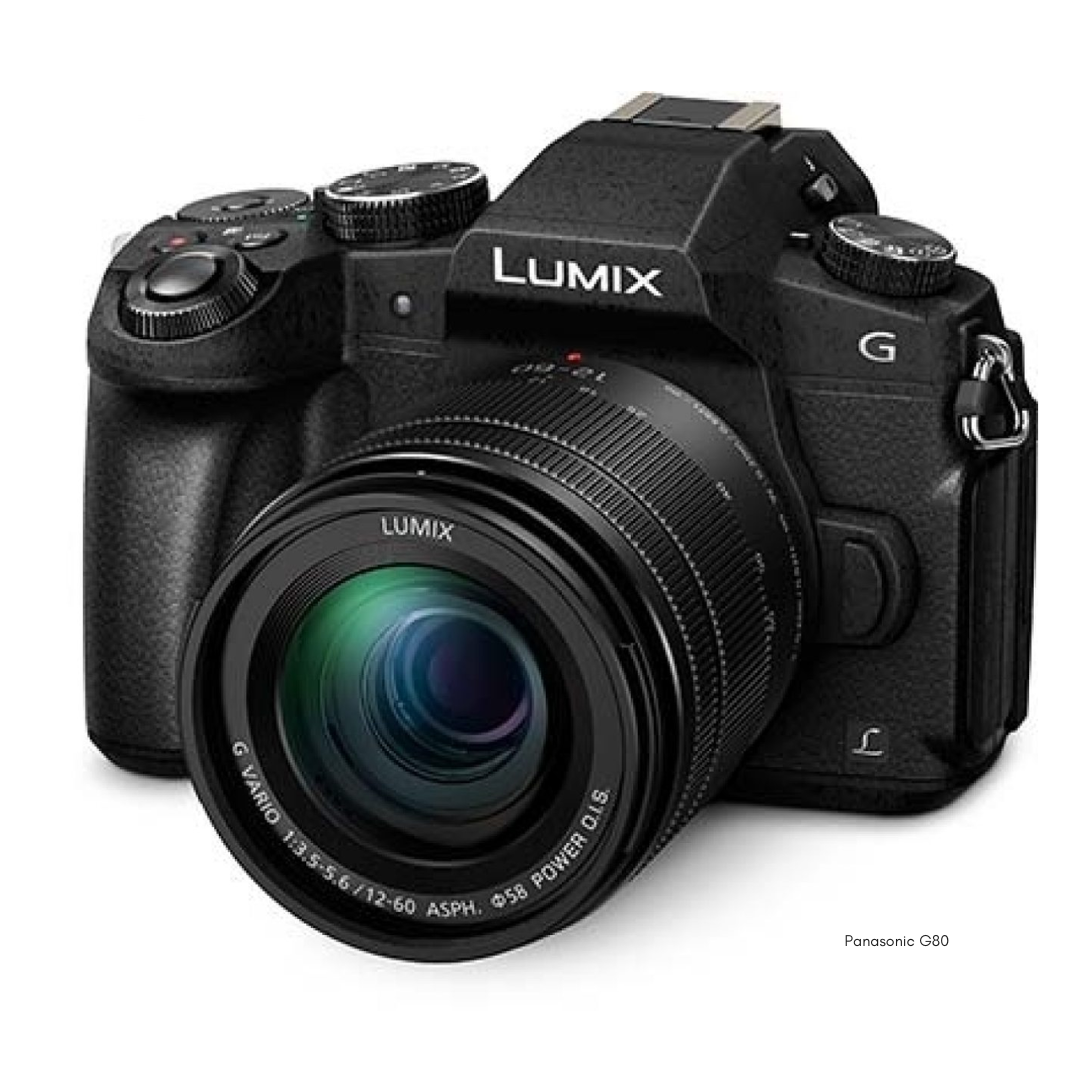
Panasonic G80 is a micro four thirds camera that's small and portable with a good range of lenses available. The camera is weather sealed ( so you won't be fearing a little rain) and it has built in 5 axis stabilisation which helps achieve sharper images at slower shutter speeds. Those who shoot or plan on shooting in manual mode will appreciate dual command dials ( so you can effortlessly adjust aperture and shutter speed without having to hold anything else down) and all other key settings sitting on buttons. From £549 at Wex, including a kit lens, it's a really good value set!
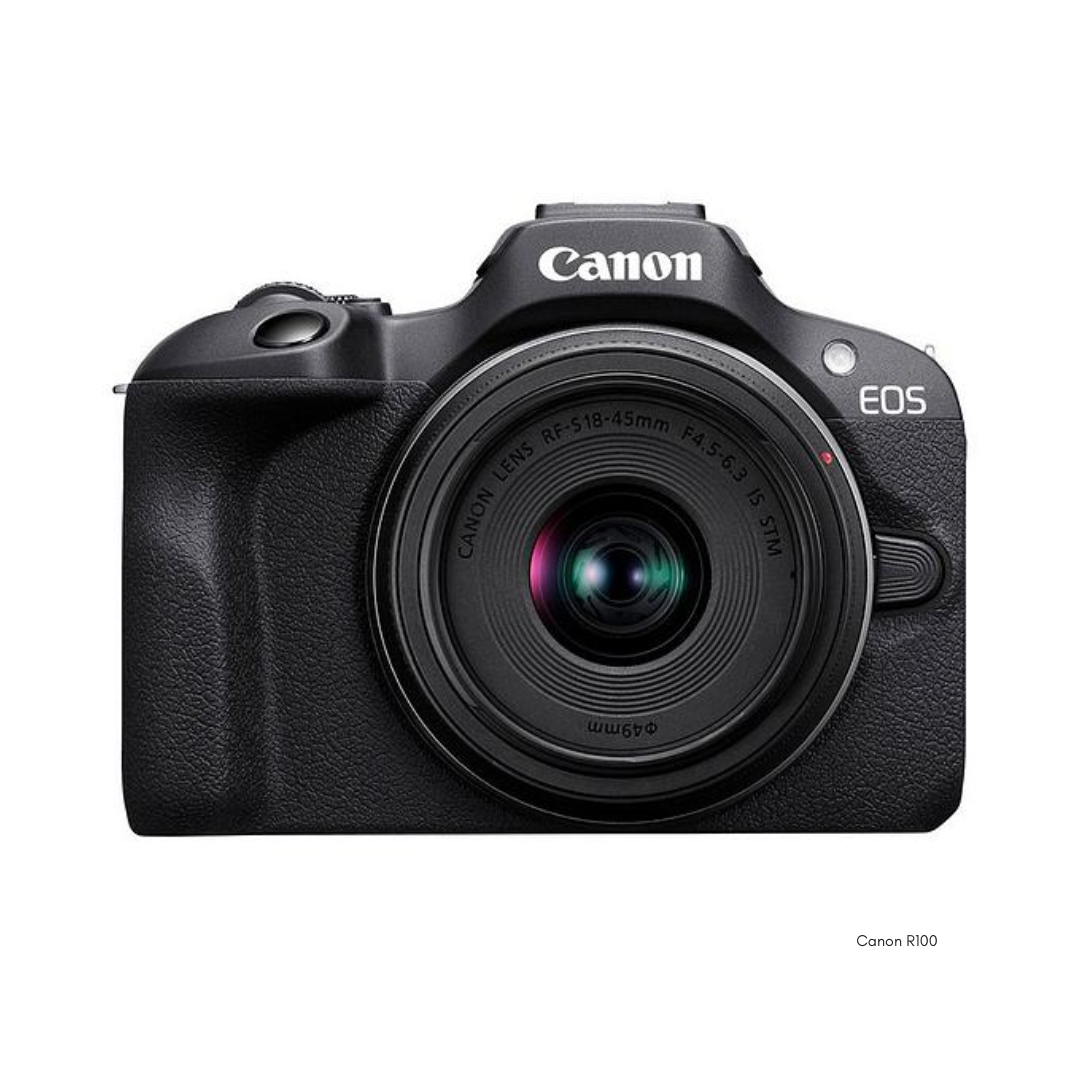
Canon R100 is an entry level mirrorless from Canon, aimed at the beginner market - much like it's 2000d range, but it's definitely updated, with more modern featured, better focus and better low light capability. This is the cheapest Canon mirrorless - a set including a lens is on offer at £499 across several retailers. All in all a capable camera that's easy to use but I have a few caveats when recommending entry level Canon cameras to those starting their photography adventure.
The Canon controversy
The reason why I don't wholeheartedly recommend Canon mirrorless cameras is not actually due to the quality of their cameras - which is as good as any of the other brands I recommend. What I dislike about Canon is their lens politics. Part of the joy of having a mirrorless or DSLR camera is in the interchangeable lenses you can get for different uses - apart from the multi-use zoom lenses, there are plenty of specialised lenses ( portrait, macro, landscape etc) that photographers invest in in their photography journey. Typically you would have a choice of brand own lenses ( Nikon, Sony, Canon etc) as well as some less expensive (yet often still very good quality) third party lens alternatives from brands like Tamron, Sigma, Samyang or Viltrux. These brands are especially good at delivering fast, bright prime lenses at prices that are often between 30% - 50% cheaper than the brand's own alternatives.
Not the case for Canon mirrorless owners. Canon has not allowed any third party lens manufacturers to create any lenses for the mirrorless range therefore limiting Canon owners options to Canon's own lenses only. You can use lens adapter rings which allow you to use older DSLR lenses but make the set up a bit larger, heavier and requiring that added expense of the adapter ring.) If you are further along in your journey, this is only a minor inconvenience because you will already own some lenses that you can convert, but if this is your first jump into a 'proper' camera it's worth considering that your options will be more limited compared to owning a similar level camera from a different brand.
Canon also complicated matters since launching into the mirrorless market by first introducing a mirrorless range called the M range (including cameras such as M50, M5 or M6) all of which are still sold but have been quietly discontinued - meaning no new updated ranges of those cameras will be available, nor are any new lenses being made for them. The problem is that the M range required a different lens set up, so that those who bought into the M range in the early days are left with lenses which don't fit the newer R range, or the DSLR range. Compared to other brands which allow a lot more inter brand and cross brand compatibility, this is an approach that I know has frustrated users who bought into it without knowing the limitations.
So do I recommend Canon mirrorless cameras? It's a yes BUT - they are great cameras and great lenses, but you do need to be prepared for that lens limitation.
Used cameras between £400-£600
We have some serious contenders in the used camera section that can really pack a lot of features in that price range. The cameras I chose go virtually neck in next with one another and it would be hard to pick a clear favourite - often the preference will be more a matter of looks, whether you prefer your settings in the menu or on buttons and dials. Consequently whichever one you pick will serve you very well.
So in no particular order:
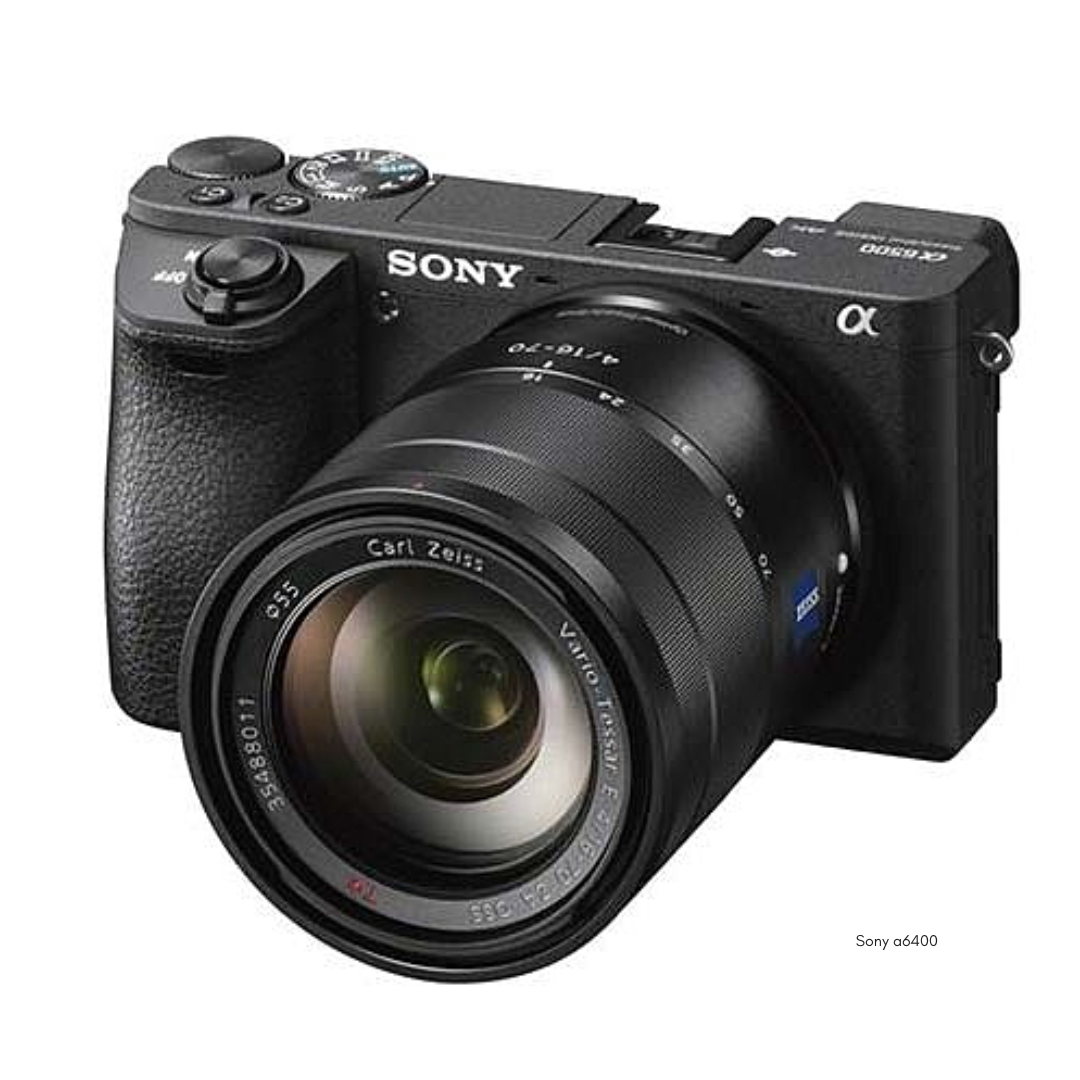
Sony a6400
Being a Sony shooter myself I have a soft spot for their cameras which are highly capable, with outstanding auto focus capabilities and plenty of smart features that make shooting with them a pleasure. The camera body is small and light and is also dust and moisture resistant which let's face it, is a reality when banging about in a typical parent's multi-use bag. There are also plenty of lenses from both Sony and third party manufacturers available both as new and used options. You can pick up a second hand Sony a6400 from around £538 at Wex
FYI : Just a quirk of Sony lineup but if you're thinking of picking up Sony a6500 instead ( which logically sounds like it should be a younger version of this camera) - don't. Sony a6500 is actually nearly 3 years older and misses out on some of the improvements and newer features of a6400 and you'll do better picking that one instead.
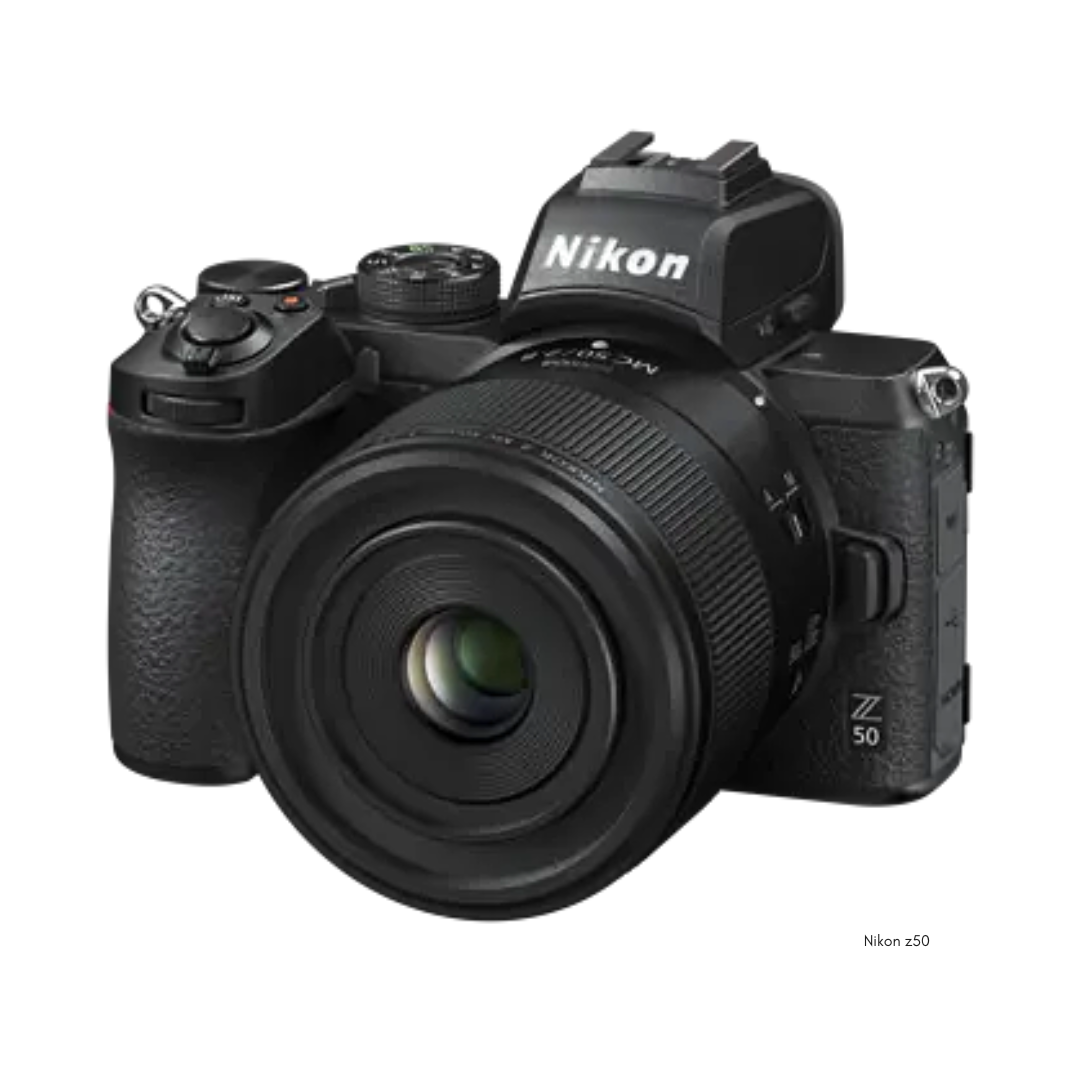
Nikon Z50
Nikon introduced the z50 in 2020 as a camera aimed at the beginner-intermediate market and the camera certainly delivers for that audience. It's small and portable but with great ergonomics - it's easy to hold and operate. The camera body is weather sealed - no worries about that rain forecast, and the battery life is pretty good for a mirrorless. It has twin adjustment dials - really handy for those who shoot in full manual and plenty of customisable options on the buttons. Both Nikon's own and third party lens range is also quite good which makes it a solid contender in this category. You can pick up a used Nikon z50 from £523 from Wex
Now, if you like the Nikon z50 features but would like a a more retro looking body, check out Nikon zfc instead - it's virtually the same camera as z50 ( bar a few minor differences) but in a stylised body, reminiscent of the old Nikon film range. from £609 at Mpb
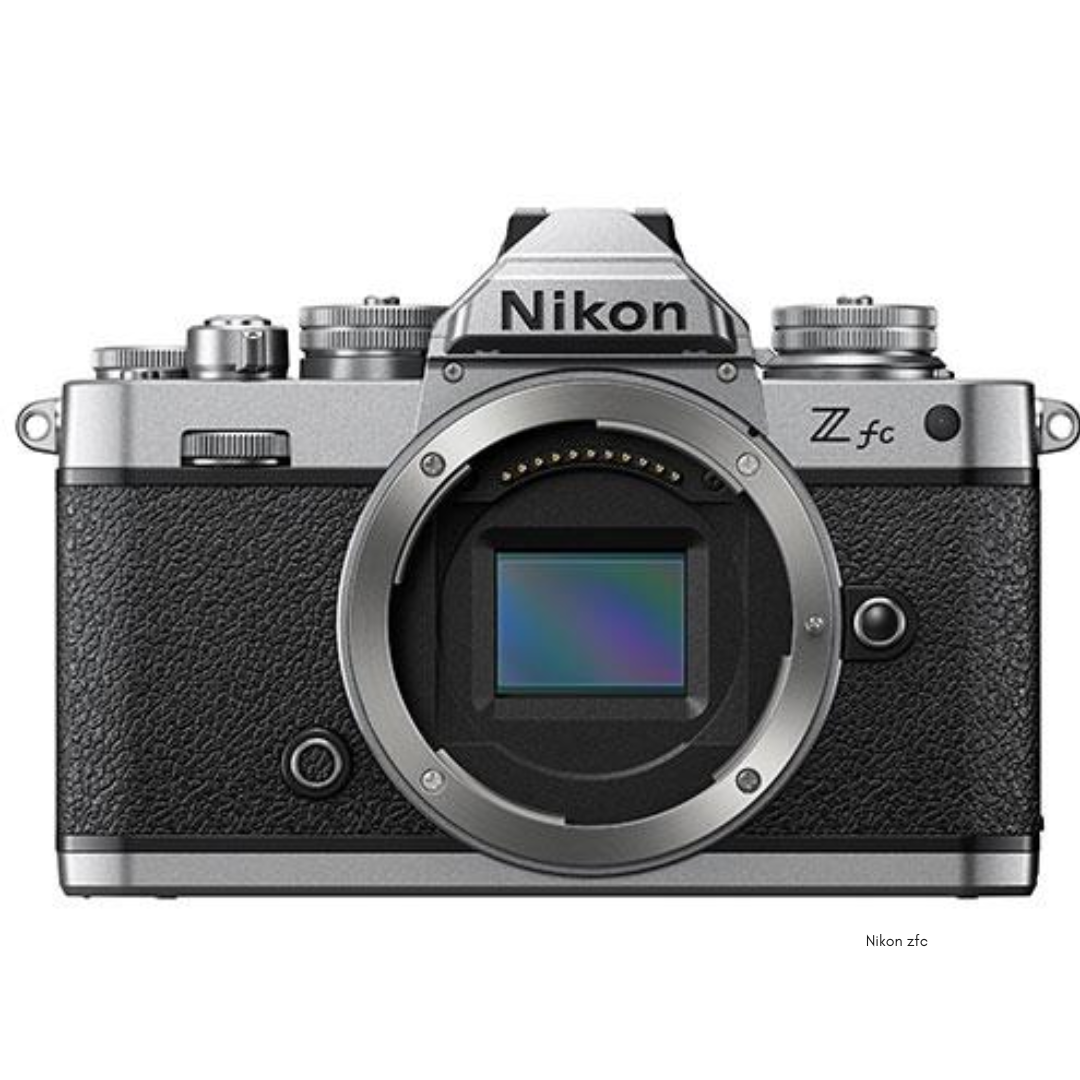
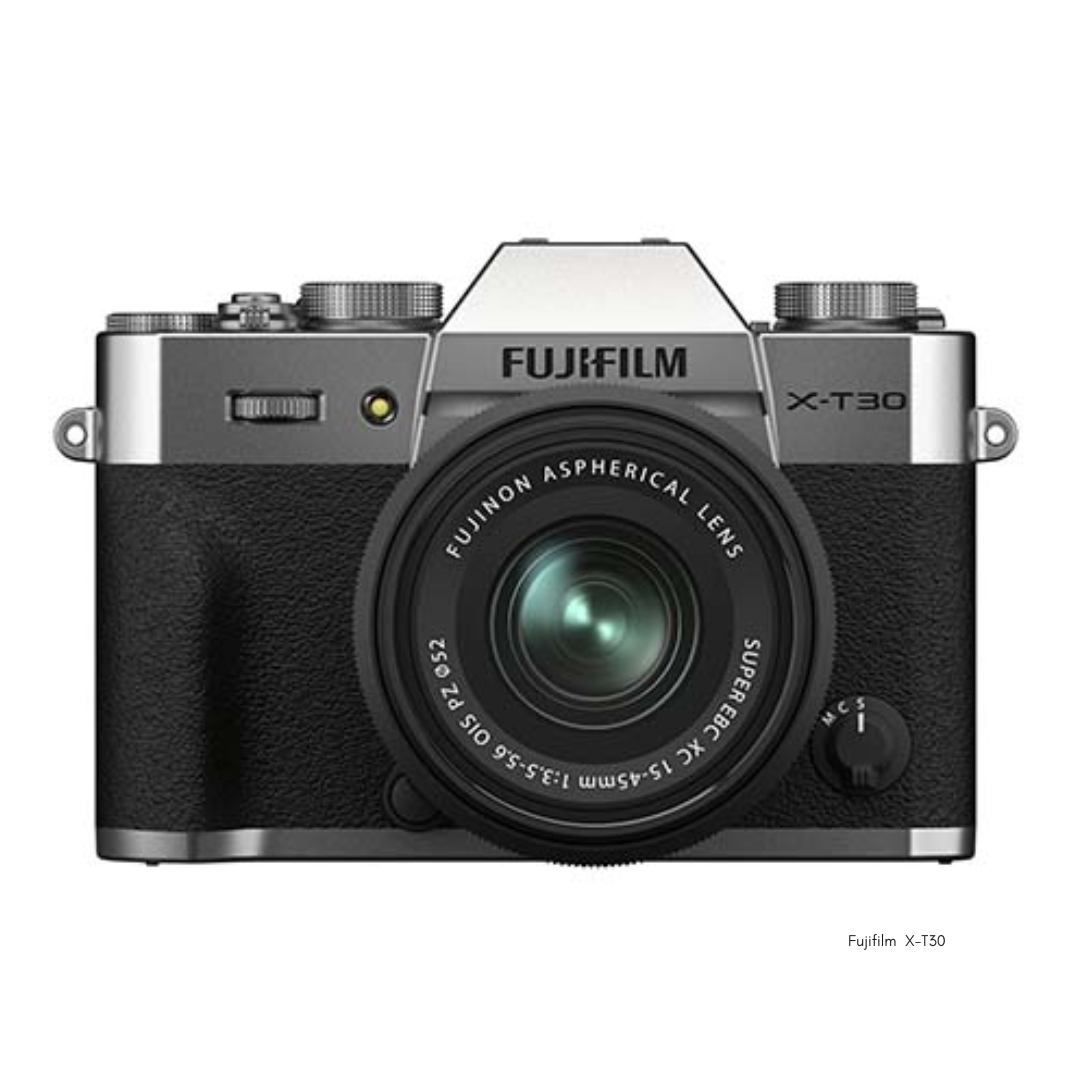
Fujifilm x-T30
Fujifilm has a few ranges aimed at different level photographers. the X-T2 and X-T3 models are aimed at more serious photographers who require more advanced settings and handling, but the lighter X-T20 ( which I recommended in the under £400 range) and x-T30 are aimed at a beginner / intermediate photographer who may not need all the bells and whistles, but who wants a quality camera nonetheless. Fujifilm's X-T30 brings the same 26MP sensor, processor and much of the feature set of the high-end X-T3 at a more reasonable price - compromising in areas such as robustness of the body ( not weather sealed compared to the higher end sibling) or it's video capability. It does however come in a smaller size, had a brilliant hybrid autofocus and the Fujifilm signature colour processing. You can find it used from around £599 at Wex. I should add that there is now a newer, updated Fujifilm x-t30 mark ii available - this will set you back approx £800 for a new camera.
Recommended cameras from £600 - £850
If you're happy to spend money in this region, your choice of cameras - both new and used get so much better.
New cameras between £600-£850
First and foremost, some of the cameras I recommended in the used category above are available new in this bracket - most notably the Sony a6400, nikon z50 ( or zfC) and Fujifilm x-t30. Since I highlighted them above, I won't repeat myself here, but instead, I wanted to shine a light on a couple of other alternatives if a new camera is what you would like :
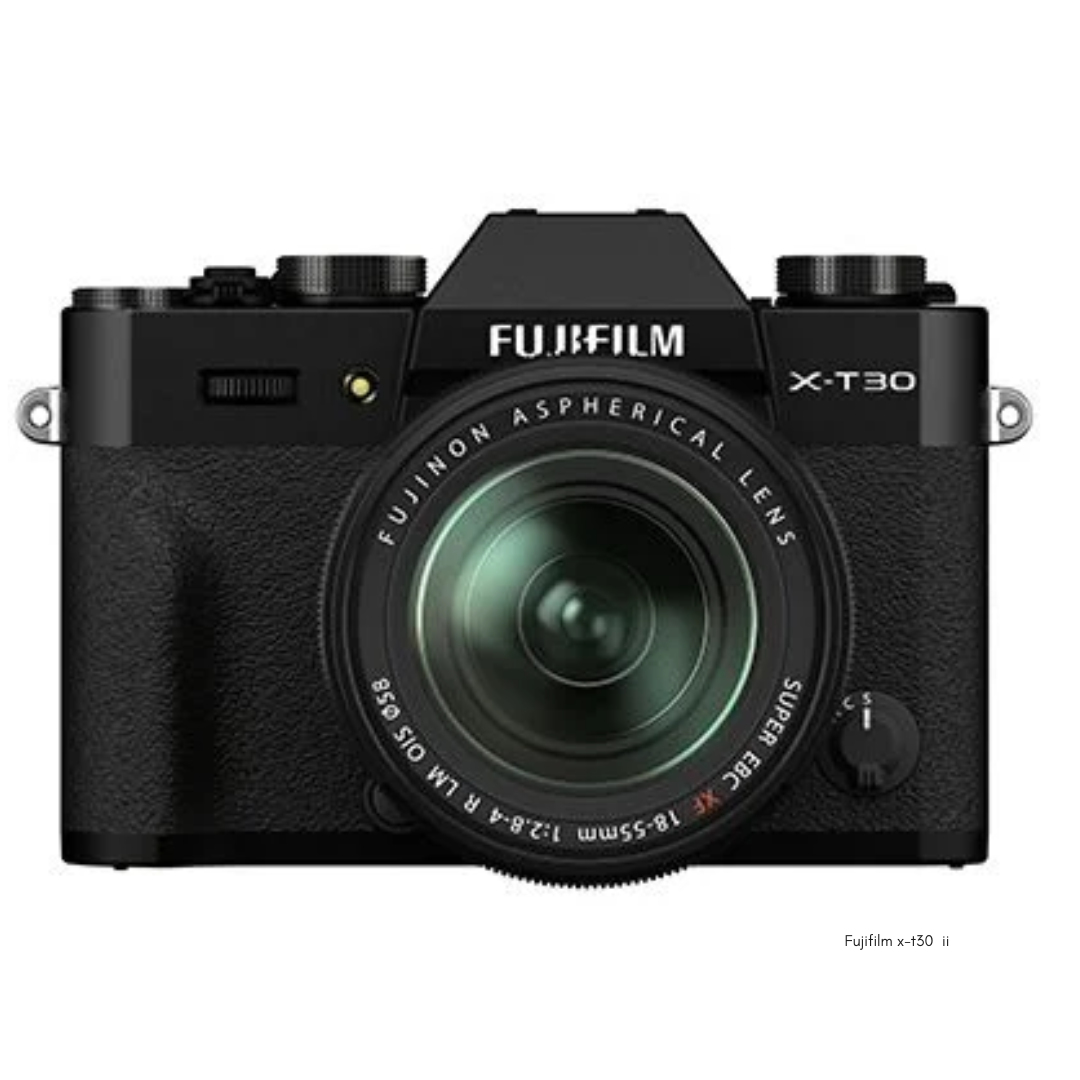
Fuji x-t30 II
This is an updated version of the x-t30 model I recommended in the section above. If you like the Fuji looks and handling and want a new camera this may be the right option for you ( the X-T30 is no longer available new) . While the hardware updates were minor, the software update brought improvements to focus handling and the camera's speed which are worth considering. This Fujifilm model is available across most retailers at £799 - for example at wex.
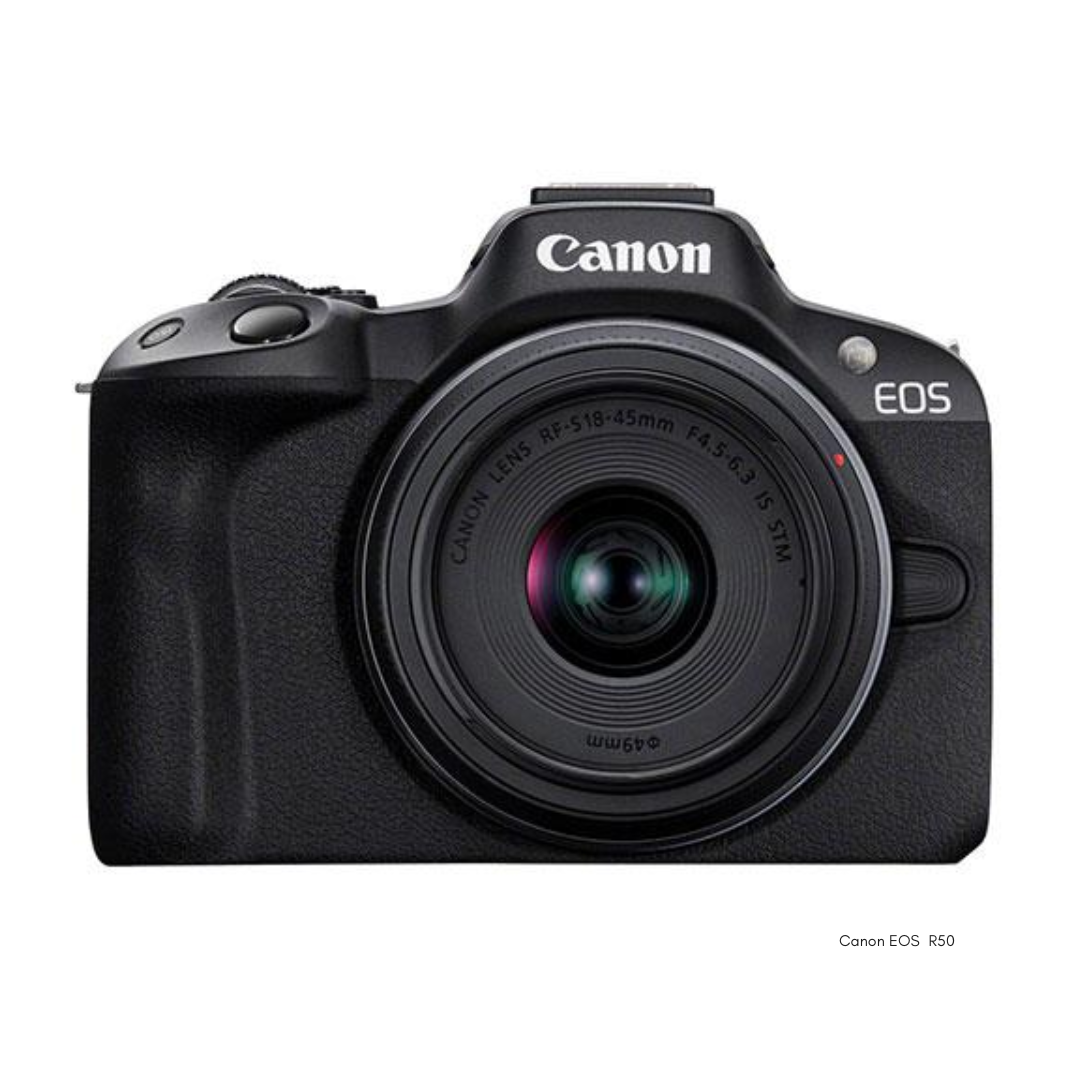
Canon R50
All my Canon controversy reservations ( see above) notwithstanding, this is a worthy camera to consider at this price bracket. Compared to the entry level R100, it is definitely an upgrade, and if I was to get a Canon camera that was to see me through a few years as a beginner-intermediate shooter, this might be the one I'd choose. It has a better sensor and better processor than R50 ( the hart and engine of the camera), the autofocus - especially its subject tracking abilities are much better, it has a faster burts rate. It also has a touch screen - something that's pretty standard for cameras at this price bracket, but that R100 is lacking. The R50 is currently on offer at £689 across various retailers
Used cameras between £600-£850
If you're willing to consider used cameras in this price range, you get to jump up a level compared to what you get with new gear. My three favourites in this section are all highly successful models with compatible features, with the user preference for one of the other often being just down to the looks, ergonomics ( how it feels in the hand) or whether a person prefers the settings to sit on buttons and dials or the menu. All three cameras are aimed at a series enthusiast and in no particular order are:
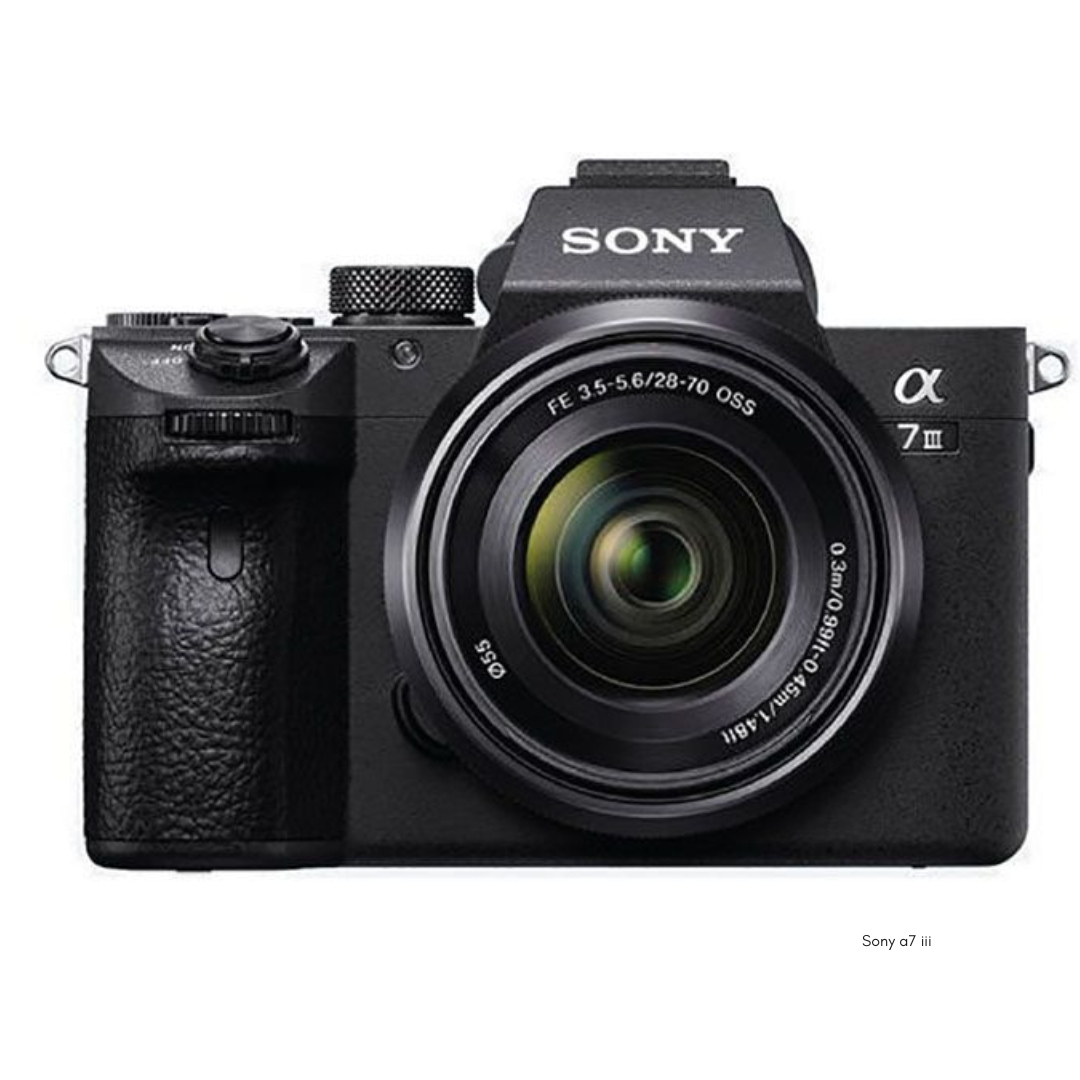
Sony a7 iii
Sony a7 iii is one of the absolute best sellers in this camera category and with really great reasons. In fact up until recently you couldn't really find it second hand under £1000 and it's only a few newer models recently added to the Sony lineup that allowed for the price to drop - I found it at Park cameras for a whisper above the top of my price range here - £869. Why should you buy it? Full frame sensor manages low light very well, the focus is outstanding , it is ergonomic to use with plenty of customised buttons, offers a silent shutter and has a double memory card slot ( so if you're shooting for money, you have insurance in case something goes wrong with your main card). Also, Sony mirrorless cameras benefit from a large pool of compatible lenses - both Sony's own and third party from Sigma, Tamron or Samyang. If you're at an enthusiast/pro level, this camera will grow with you.
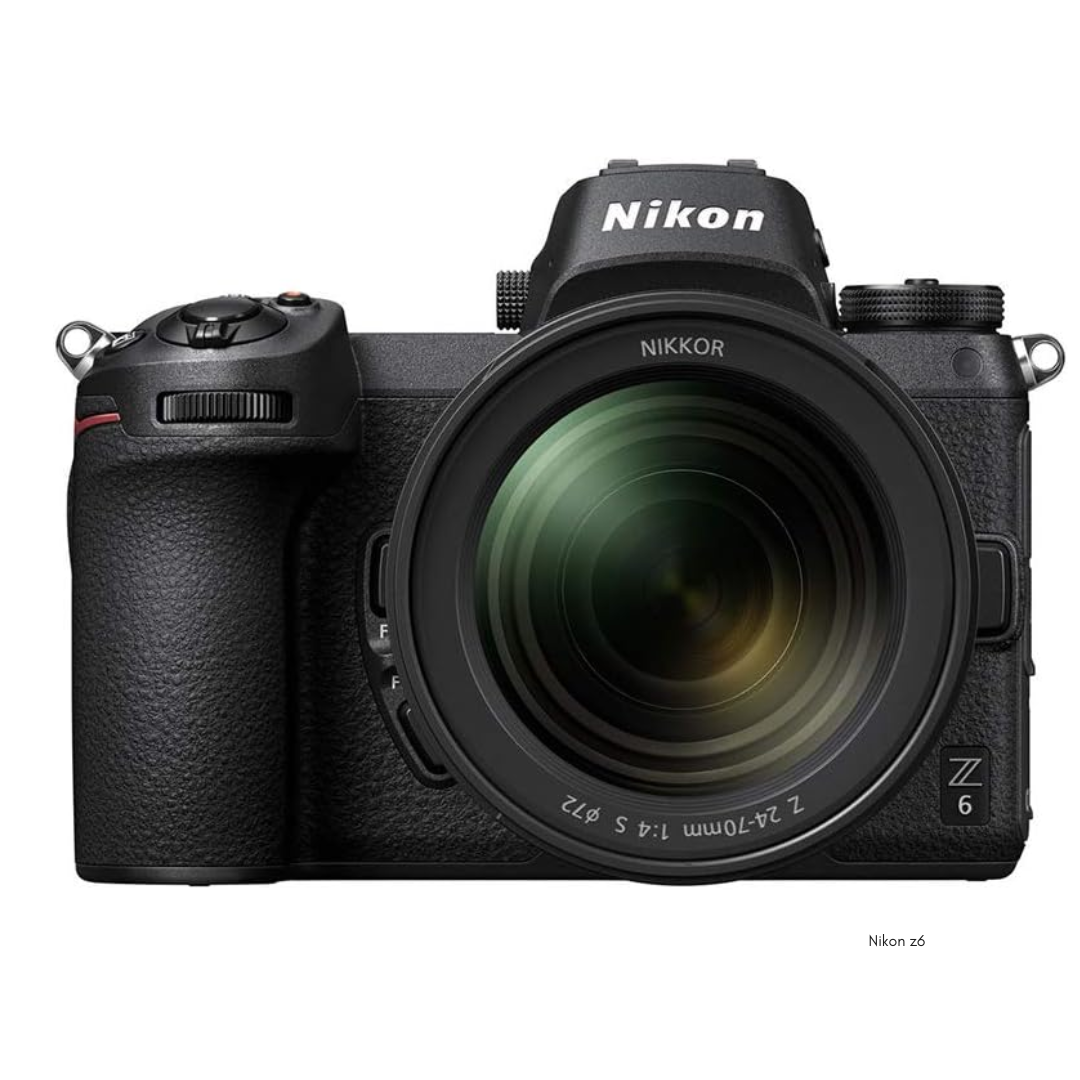
Nikon z6
Going literally neck in neck with the Sony a7 iii, this Nikon camera is also a worthy investment. Also a full frame camera with a very capable autofocus, good low light performance and very similar ergonomics to sony a7iii in terms of placement of dials and buttons - in many ways the choice between these two might be down to whether or not you already own a range of nikon DSLR lenses ( which can be used with this camera via a reasonably affordable adaptor ring), or whether you need a dual card slot ( which Sony has but this Nikon does not). The available lens pool is not quite as wide as Sony's, but there are both Nikon's own and third party lenses available and but the fact that many people who switch to this Nikon already have legacy lenses ( which can be used with a ring adaptor) can easily make up for it. You can get a second hand body from around £749 at mpb.
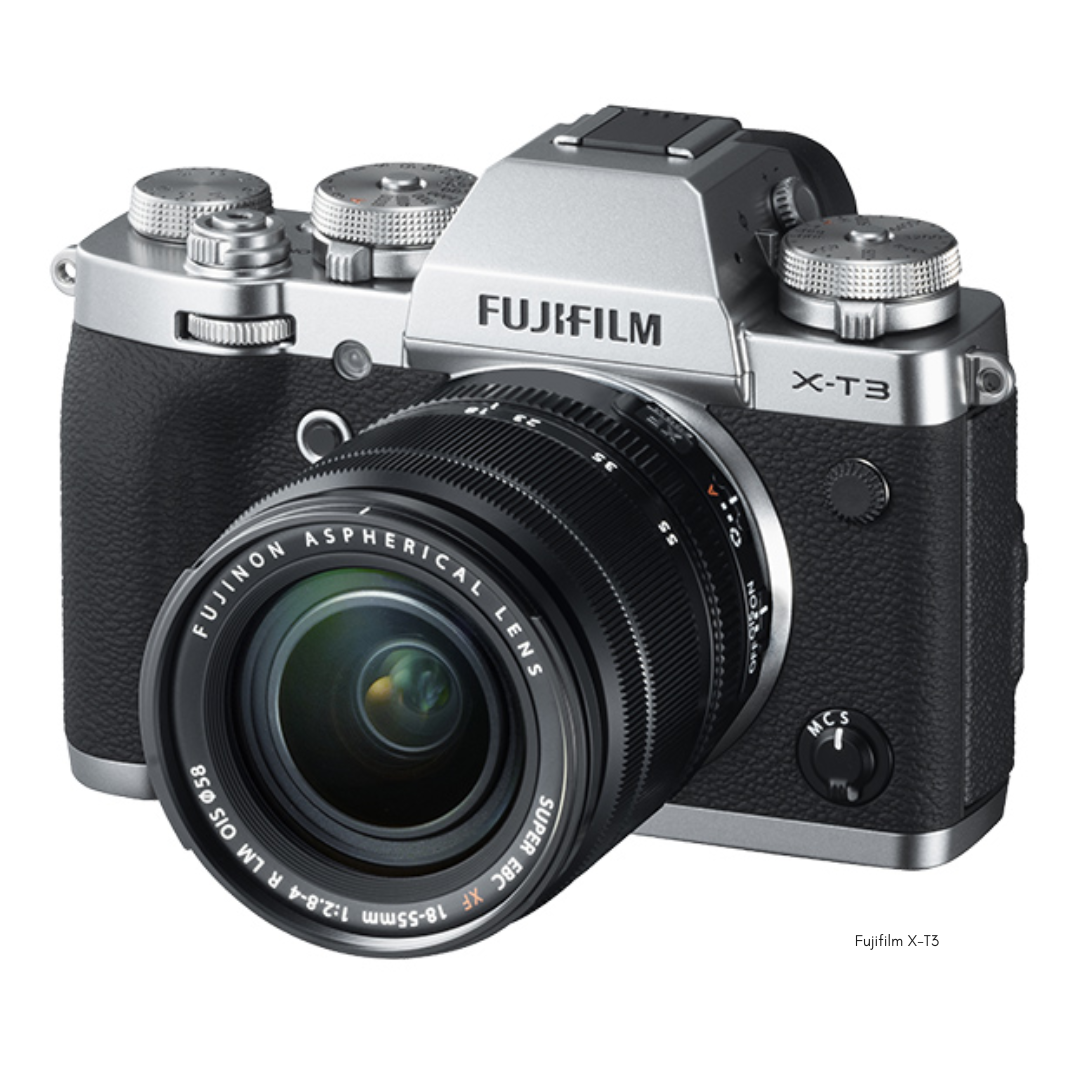
Fujifilm x-t3
My final contender in this price range is a big brother to the fujifilm cameras I introduced in the previous sections - Fuji X-T3 - this one is aimed at a serious enthusiast photographer and has features to match but it retains the trademark handling, with dedicated dials on top of the camera and its retro styling. It also has the film simulation options beloved by many photographers. The lens selection is really good for Fuji, it features weather-sealed body ( unlike the lower end fuji models), like Sony it gives you 2 memory card slots and it's a camera that's a pleasure to shoot with. I do however have to mention here that unlike the Sony and Nikon I listed above, this is a crop sensor camera which translates somewhat to its handling of low light. Not all photographers need a full frame camera so it is by no means a dealbreaker - I'd recommend going into a shop to hold one if you're considering it. On the plus side, it's also less costly - a second hand camera can be found from around £650 - here is the selection at wex
If you want to learn more about cameras and lenses, I recommend using our free resource guides - they may help you understand some of the terminology used in this article.

Ready to learn your camera and how to photograph your children beautifully?
you need this:
Photography for Parents
Fundamentals
6 week online Photography course which gives you all the necessary camera know-how skills as well as the foundation in composition, light and photographic storytelling - all with a focus on photographing children. This means - no more fumbling with your camera at the crucial moments and being able to capture your children naturally, in their own environment, for exactly who they are. It's a no-brainer for any parent who wants to be able to capture memorable, treasured photos of their children!
